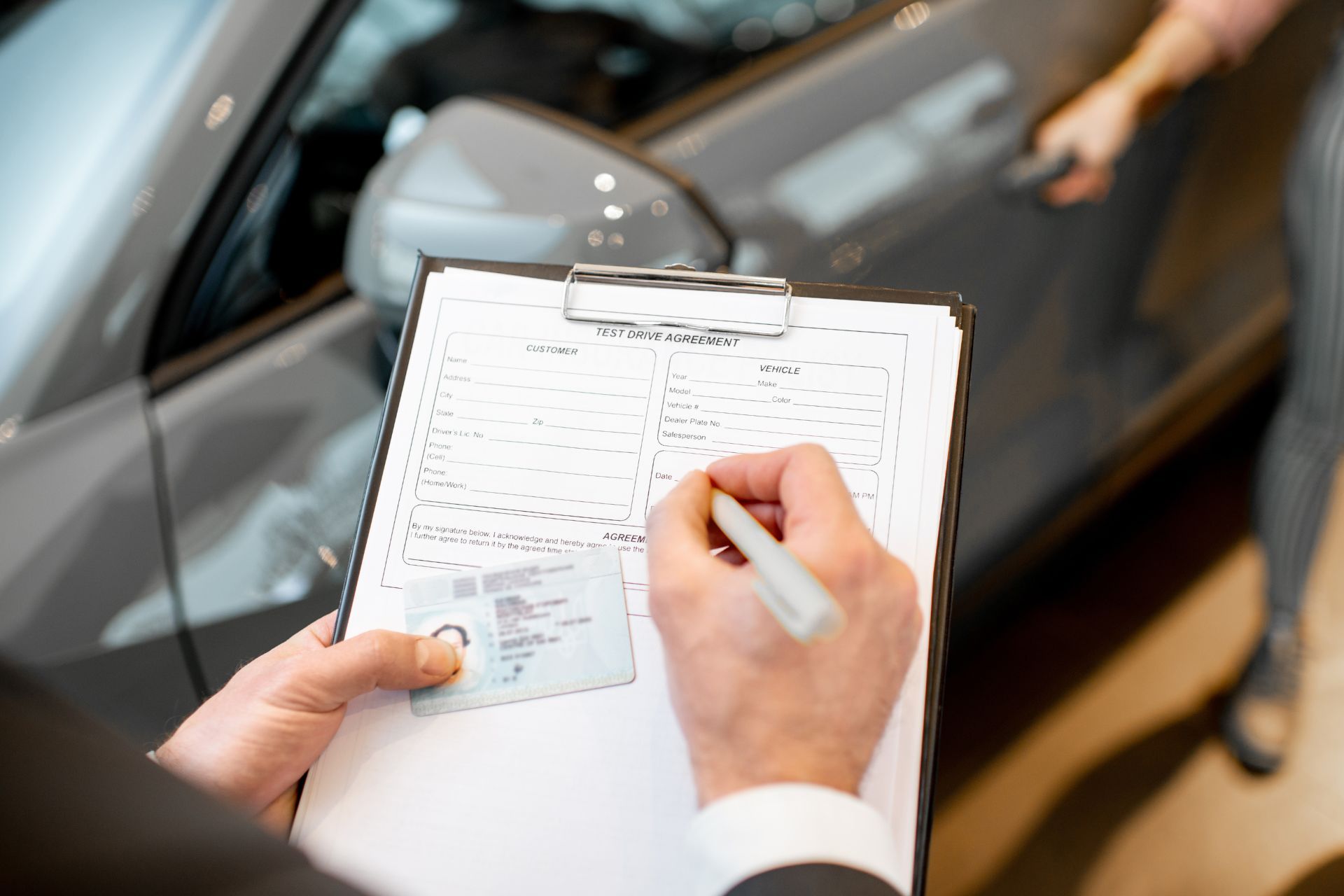Does Dairyland Insurance Offer SR22 Insurance in Florida?
18 July 2025
See How We're Different
or call us: (727) 620-0620

Motorists researching special filing requirements after a serious traffic offense often discover that everyday auto policies no longer meet the state’s proof-of-financial-responsibility rules. In Florida, the two filings most commonly mentioned are the SR-22 and its close cousin, the FR-44. Drivers looking for a carrier that can handle these mandates quickly and affordably frequently hear the name Dairyland Insurance. The company has earned a national reputation for writing policies for high-risk drivers, but does that track record extend to the Sunshine State? The answer is yes—Dairyland does issue SR-22 certificates in Florida—but understanding how the program works, what it costs, and how it compares to other options requires a deeper dive. The following guide breaks down every major detail so Florida drivers can make an informed choice and stay on the road legally.
What Exactly Is SR-22 Insurance?
An SR-22 is not a type of insurance in the traditional sense; rather, it is an electronic document filed with the Department of Highway Safety and Motor Vehicles (DHSMV) that verifies a driver has purchased at least the minimum liability coverage required by law. When the state labels someone “high risk” because of license suspension, multiple at-fault accidents, or a series of violations, it demands stronger proof than a standard ID card. The insurer, not the driver, transmits the certificate directly to the state and is obligated to notify officials immediately if the policy lapses or is canceled. This “continuous monitoring” feature is what distinguishes an SR-22 from ordinary proof of insurance.
Contrary to popular belief, the form itself does not raise premiums; the higher rates arise from the underlying driving record that triggered the filing. Still, the need for an SR-22 narrows a motorist’s carrier options because not every insurer is willing to service high-risk files. Carriers that do provide the filing typically add a one-time administrative fee—often around $25—to cover internal processing. In Florida, the certificate must be maintained for three consecutive years in most cases, and any lapse restarts the clock, making reliable insurer selection critically important.
Understanding the implications of needing an SR-22 can help drivers navigate the complexities of high-risk insurance. For instance, many drivers may not realize that the SR-22 requirement can affect their ability to obtain other types of insurance, such as homeowners or renters insurance. Insurers often view a high-risk driving record as a red flag, which may lead to higher premiums across the board. Additionally, some states may have specific requirements for SR-22 filings, including the need for additional coverage types, such as uninsured motorist coverage, which can further complicate the process.
Moreover, the stigma associated with having an SR-22 can impact a driver's confidence and perception on the road. Many individuals may feel anxious about being labeled as a high-risk driver, which can lead to increased stress while driving. This psychological aspect is often overlooked but is crucial in understanding the broader implications of SR-22 insurance. As drivers work to improve their records and eventually remove the SR-22 requirement, they may find themselves more cautious and responsible behind the wheel, ultimately leading to safer driving habits in the long run.
SR-22 Versus FR-44: Florida’s Dual Filing System
Florida is one of only two states that employ both SR-22 and FR-44 certificates. The primary distinction lies in the underlying offense and the liability limits required. An SR-22 is generally ordered after repeated moving violations, driving without insurance, or accumulating too many points. An FR-44, on the other hand, is reserved for alcohol- or drug-related convictions—most commonly a DUI—and it mandates significantly higher bodily injury and property damage limits (100/300/50 rather than the state minimum 10/20/10).
Because FR-44 cases involve heightened coverage amounts, premiums can be dramatically higher—sometimes double those for drivers who need only an SR-22. Dairyland participates in both types of filings, but this article focuses on the SR-22 because that is the certificate named in the headline question. Nonetheless, understanding the difference matters because drivers occasionally mistake one filing for the other, leading to delays in license reinstatement. When in doubt, the court order or DHSMV letter specifying the required form should be reviewed before purchasing a policy.
Who Is Dairyland Insurance?
Dairyland is a subsidiary of Sentry Insurance that has been writing non-standard auto policies since 1953. The company first gained prominence by serving motorcyclists and high-risk drivers in the Midwest, but it now operates in 37 states, including Florida. While many large national carriers prefer clean-record customers, Dairyland intentionally targets motorists who have tickets, accidents, or prior lapses in coverage. That focus has made the brand a go-to choice for people needing special filings such as SR-22s and FR-44s.
According to S&P Global Market Intelligence, Dairyland held approximately 1.8% of Florida’s non-standard auto market in 2023—placing it among the top ten insurers in that niche. The company’s underwriting flexibility, month-to-month payment plans, and reputation for quick electronic filing have all contributed to its growth. In a survey conducted by ValuePenguin, 82% of Dairyland policyholders who required an SR-22 reported that the certificate was filed within 24 hours of purchase, a speed that can be pivotal when a driver is eager to get back on the road.
Does Dairyland Offer SR-22 Insurance in Florida?
The short answer is yes. Dairyland is actively licensed to sell private passenger automobile insurance in Florida and is authorized to transmit SR-22 forms to the DHSMV. When a Florida driver purchases a Dairyland policy and indicates the need for an SR-22, the insurer automatically attaches the form and submits it electronically. Proof is typically visible in the DHSMV database within one business day, although processing times can fluctuate during peak periods like the start of each month.
It is worth noting that underwriting guidelines vary between states. While Dairyland does restrict coverage in certain ZIP codes or for certain vehicle types elsewhere, Florida applicants rarely encounter geographic exclusions. The company will even file an SR-22 for drivers who do not own a vehicle, issuing what is called a non-owner policy. This flexibility is especially helpful for motorists who rely on borrowed or rented cars but still need to reinstate a suspended license.
Eligibility Requirements for a Dairyland SR-22 in Florida
Most Florida drivers with a valid license reinstatement letter can qualify, but Dairyland sets a few baseline criteria. Applicants must be at least 18 years old, possess a permanent street address (P.O. boxes are not accepted for filing purposes), and disclose all household drivers. Vehicles must pass a basic VIN verification check to ensure they are not salvaged or stolen. While a previous DUI does not disqualify a driver from an SR-22 policy, it may push the case into FR-44 territory, requiring higher limits and rates.
Credit-based insurance scores also come into play. Florida allows insurers to use credit as a rating factor, and Dairyland does so, although applicants with very poor scores are rarely declined outright—they simply pay a higher premium. Finally, if a driver has any unpaid judgments, an active out-of-state suspension, or owes reinstatement fees to DHSMV, the policy can be written but will not automatically clear the hold. Those obligations must be satisfied independently before the SR-22 alone will restore driving privileges.
Cost Factors and Typical Premiums
Pricing for SR-22 insurance in Florida hinges on four broad categories: driving record, location, vehicle, and personal characteristics. Actuarial data collected by the Insurance Information Institute shows that Florida drivers with a recent reckless-driving conviction pay an average of 59% more than standard-risk motorists. Miami-Dade, Broward, and Duval counties consistently record the highest SR-22 premiums because of dense traffic and elevated accident frequencies.
Dairyland’s own quoting portal, sampled in March 2024 across six Florida ZIP codes, returned monthly rates ranging from $143 for a non-owner SR-22 in Tallahassee to $312 for an owner-operator policy in Fort Lauderdale driving a 2017 Honda Accord. The one-time SR-22 filing fee was $25 in every scenario. Drivers should also budget for DHSMV reinstatement costs, currently $150 for the first suspension rising to $500 for multiple offenses. Paying in full up front can yield a 10-15% discount with Dairyland, while opting for electronic funds transfer instead of a debit card trims another $5–$7 per month.
Step-by-Step Guide to Obtaining a Dairyland SR-22 in Florida
1. Gather Documents
Start by locating the court order or DHSMV notice that mandates an SR-22. Have your driver’s license number, vehicle identification number, and any reinstatement fee invoices on hand. These details enable a precise quote and faster electronic filing.
2. Request a Quote
Quotes can be obtained online or through a licensed local agent. Provide truthful answers about previous violations; Dairyland will cross-check the information through the state motor vehicle report (MVR). Misstatements only delay approval.
3. Choose Coverage and Pay
Select at least the Florida minimum liability limits—though many high-risk drivers opt for higher coverage to protect assets. Dairyland accepts credit cards, debit cards, EFT, or money orders. As soon as the initial payment clears, the policy becomes active.
4. SR-22 Filing
Dairyland’s filing department transmits the SR-22 electronically and issues a hard copy for the driver’s records. Keep this paperwork until confirmation appears on the DHSMV website, usually within 24–48 hours.
5. Verify Reinstatement
Log into
MyDMV Portal or visit a local tax collector’s office to confirm license status. If any additional fees are outstanding, pay them immediately; the SR-22 alone does not settle reinstatement charges.
Comparing Dairyland to Other SR-22 Providers in Florida
Progressive, GEICO, and Allstate all file SR-22s, but their willingness to accept multiple violations varies. A 2024 comparison by NerdWallet found that Dairyland beat the average SR-22 rate in Florida by 11%, while Progressive was 4% below average and GEICO 7% above. Those gaps widen in coastal counties with higher claim frequency, where Dairyland’s discounts for defensive-driving courses and electronic policy delivery offset some risk surcharges.
Customer-service metrics tell a fuller story. J.D. Power’s 2023 Auto Claims Satisfaction Study ranked Dairyland slightly below the national median, but the company’s “speed to file” score—how quickly it submits required paperwork—outpaced every other non-standard carrier reviewed. For drivers desperate to regain legal driving status within days, that efficiency often outweighs minor service-quality concerns. Nevertheless, motorists should still obtain at least three quotes, as underwriting models change quarterly and a different insurer could be cheaper in a given county or for a particular violation.
Strategies to Reduce High-Risk Insurance Costs
Even when an SR-22 is unavoidable, smart choices can soften the financial blow. The simplest tactic is to opt for a non-owner policy if you do not currently possess a vehicle. Because no car is insured for physical damage, the premium generally runs 35–50% less than an owner-operator plan. Once the SR-22 period concludes, you can switch to a standard policy when you purchase a car without the high-risk label.
Additional savings come from higher deductibles, bundling renters insurance, installing anti-theft devices, and completing an approved 4-hour Basic Driver Improvement course—mandatory for some violations but voluntary for others. Dairyland applies the defensive-driving discount automatically once a certificate is uploaded. Payment method matters too; using EFT instead of monthly card payments avoids recurring processing fees. Over a three-year filing term, such incremental savings can total more than $900.
Maintaining Compliance and Avoiding Lapses
The most expensive mistake a driver can make after securing an SR-22 policy is allowing it to cancel. When a lapse occurs, Dairyland is legally required to notify DHSMV, which then suspends the license again and resets the three-year clock. Missed installments are the leading cause of cancellation, so setting automated reminders or enrolling in AutoPay is strongly recommended.
Drivers planning to move out of Florida should keep their Dairyland policy active until the destination state confirms it will assume the filing. Many states honor Florida SR-22s, but the paperwork exchange can take weeks. Similarly, if you decide to switch insurers mid-term, coordinate an exact same-day start date for the new policy so there is no gap in coverage. When the DHSMV-mandated term finally ends, request written confirmation from Dairyland that the SR-22 requirement has been satisfied and that the filing is being withdrawn—the state does not remove it automatically without the insurer’s notice.
Frequently Asked Questions About Dairyland SR-22 Insurance in Florida
How long must an SR-22 be carried in Florida?
Most non-DUI violations require three years of continuous coverage. The count begins on the date the SR-22 is accepted by DHSMV and restarts if the policy lapses for even one day.
Is an SR-22 always more expensive than a standard policy?
Yes, but the form itself costs little—the increase stems from the violation history. Dairyland’s $25 filing fee is typical, but the underlying liability premium can rise 40–70% over standard rates.
Can I get an SR-22 if I don’t own a car?
Absolutely. Dairyland issues non-owner SR-22 policies that satisfy the state’s requirement and allow you to drive borrowed or rented vehicles legally.
Does Dairyland offer roadside assistance on SR-22 policies?
Yes, optional roadside coverage and towing can be added for a small per-month fee. The add-on has no impact on SR-22 status.
What happens when the SR-22 period ends?
Contact Dairyland for confirmation, and ensure the insurer files a form deleting the SR-22. Only then will DHSMV remove the high-risk flag from your license record.
Key Takeaways
Dairyland Insurance is a viable, widely-used option for Florida drivers who need an SR-22 filing. The company’s willingness to accept high-risk applicants, its rapid electronic filing system, and competitive pricing make it a strong contender in the non-standard market. While premiums are undeniably higher than standard policies, Dairyland offers several discounts and flexible payment plans that can take some pressure off household budgets.
The most important steps are to verify whether an SR-22 or FR-44 is required, gather the necessary documents, obtain multiple quotes, and maintain uninterrupted coverage for the full state-mandated term. By following the guidelines outlined above, drivers can fulfill Florida’s legal requirements, protect their finances, and, perhaps most importantly, regain the freedom of the open road without unnecessary delay.





